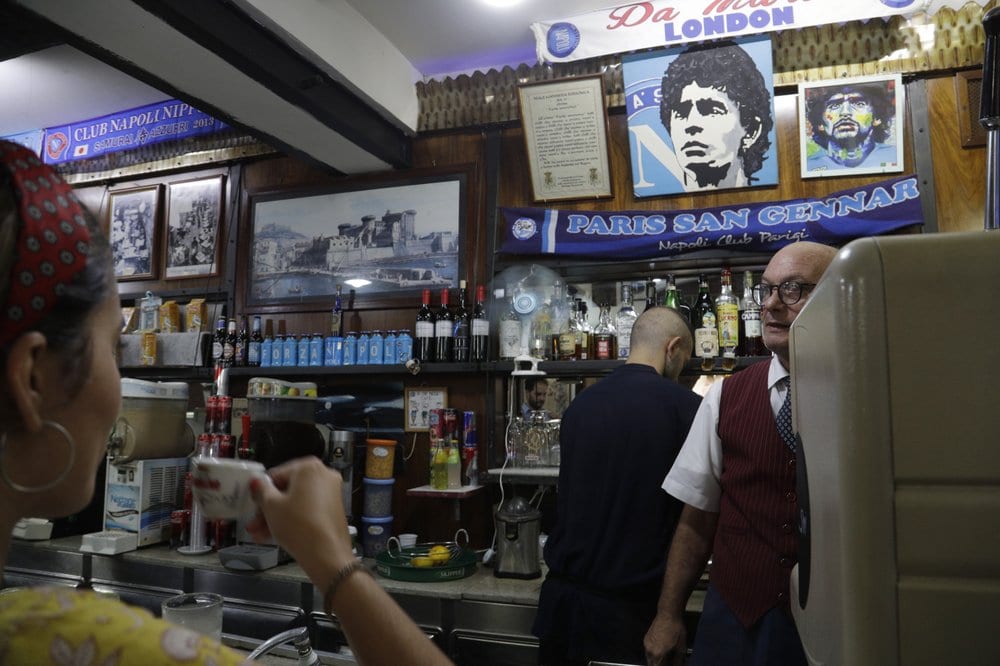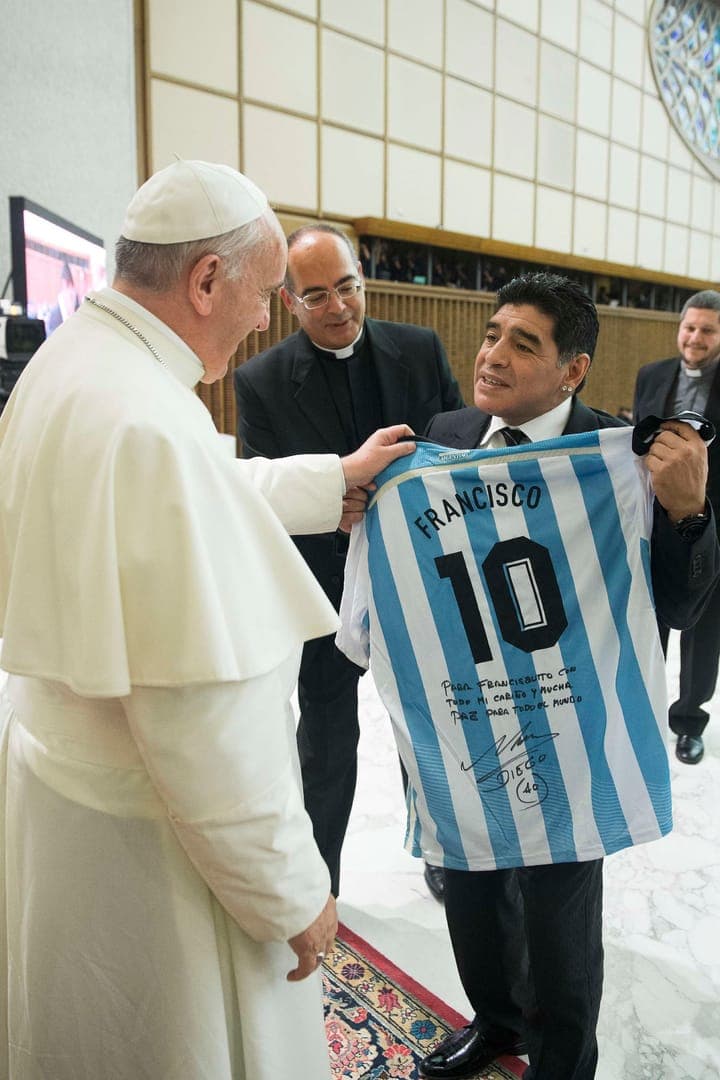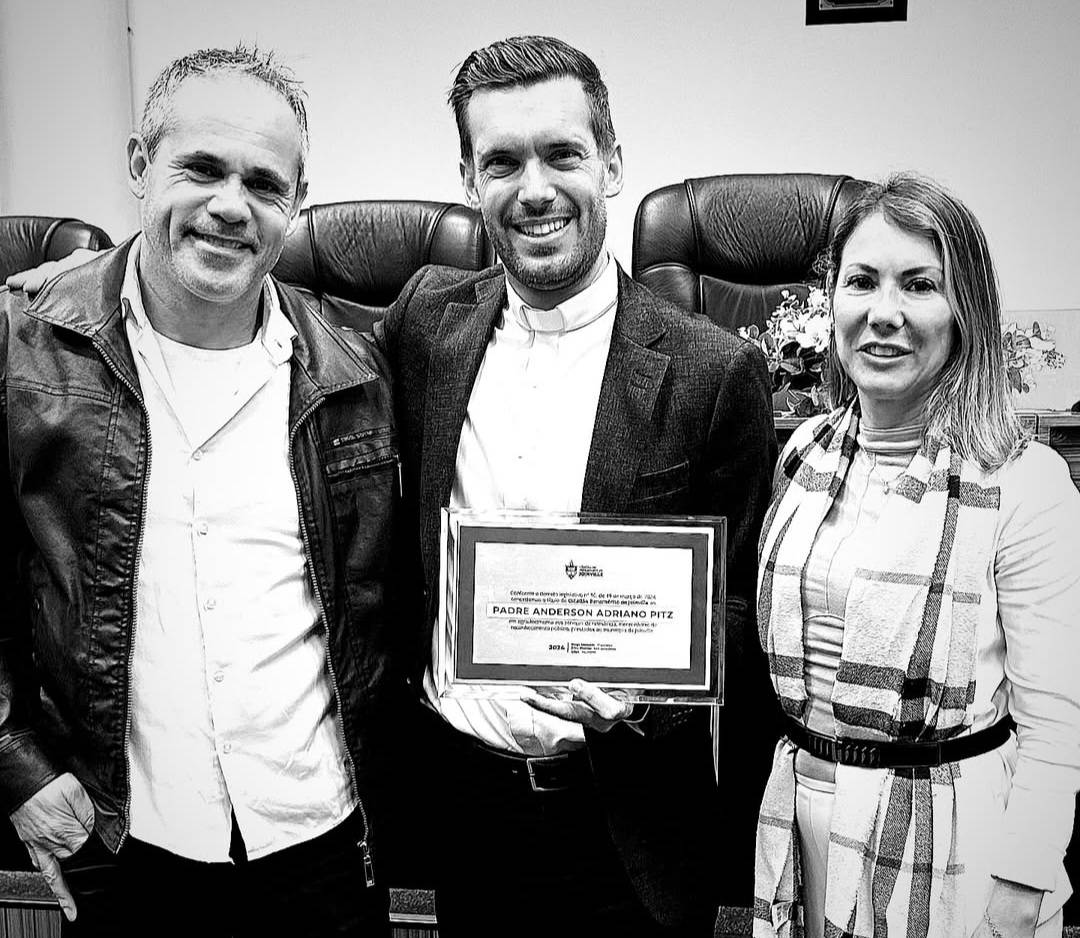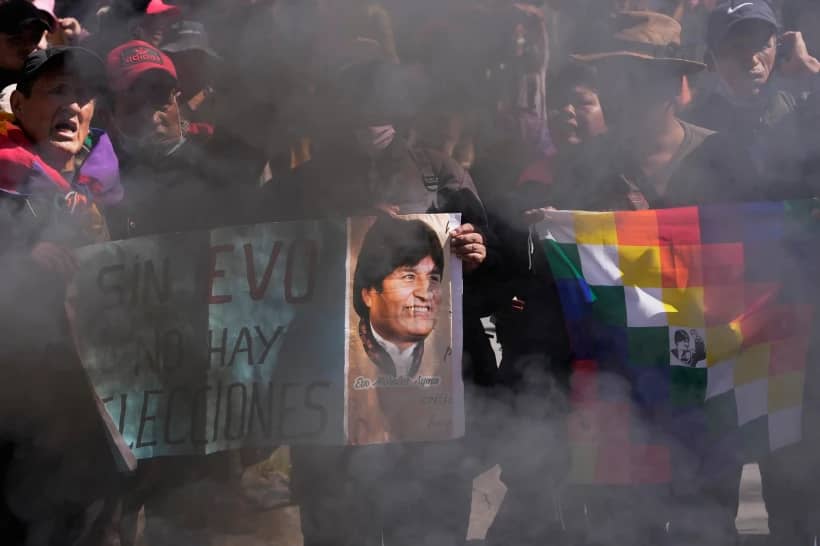ROSARIO, Argentina — Arguably one of the greatest soccer players in history, Diego Armando Maradona died on Thursday, at the age of 60.
The Argentinian legend was at home, recovering from brain surgery and in rehab for his alcoholism when he suffered a heart attack.
Thursday evening, the Vatican put out a statement about Pope Francis’s reaction to the death of his compatriot.
“Pope Francis has been informed of Diego Maradona’s death, he thinks back with affection on the occasions of encounter [they had] in recent years and remembers him in prayer, as he has done in recent days since he learned of his health conditions,” a Vatican spokesman told reporters Thursday.
In 2016, Maradona described himself as a man who had return to his Catholic faith inspired by Pope Francis, and the pontiff received him in the Vatican several times as part of a wider group of players taking place in the “Match for Peace,” an initiative for promoting interreligious dialogue and papal charitable efforts.
For many of the fans who mourned his passing, both in Argentina and in the Italian city of Naples, where he became a legend during the height of his career, Maradona occupied a special niche, who called him a god. Not a prophet or the reincarnation of some ancient soccer deity, but D10S (a play on the Spanish word dios for “God” incorporating Maradona’s jersey number 10).
He was reluctant to accept that comparison, as shown in a 2019-HBO documentary, when he brushes off an Italian TV presenter who said, “Neapolitans have Maradona inside them more than they do God.”
The devotion many in Argentina had for Maradona – the government on Thursday declared three days of mourning – is perhaps only rivaled in Naples, one of Italy’s poorest cities: Prayer cards with the local hero can be found at arguably every taxi and city bus, murals showing his face are on buildings across the city, and there’s even a Shrine of The Miraculous Hair of Diego Maradona, complete with a small Pope Francis statue and prayer cards of several local saints.
Maradona, a long-time supporter of Hugo Chavez, Fidel Castro and Nicolas Maduro, first spoke about Francis after his election in 2013, saying he wanted for the head of the Catholic Church to move ahead with reforms and transform the Vatican from “a lie” into an institution that gives more to the people.
“He has to change a state like the Vatican so that it gets closer to the people,” Maradona told the Naples-area television station Piuenne. “The Vatican, for me, is a lie because instead of giving to people it takes away. All popes have done this, and I don’t want him to do it.”

In 2014, Maradona played at the first charitable soccer match organized by the Vatican. During a press conference, he said: ’Everybody in Argentina can remember ‘the hand of God’ in the England match in the 1986 World Cup. Now, in my country, the ‘hand of God’ has brought us an Argentinian Pope.”
(The “Hand of God” referenced the fact that Maradona’s hand touched the ball when he scored against England, but the referee didn’t rule the goal null, angering English fans.)
“Pope Francis is even bigger than Maradona,” Maradona said. “We should all imitate Pope Francis. If each one of us gives something to someone else, no-one in the world would be starving.”
Two years later, Maradona credited Francis for the revival of his faith and his return to the Catholic Church after he met him in a private audience at the Vatican.
“When he hugged me, I thought of my mother and inside me, I prayed. I’m glad I’ve come back to the Church,” Maradona said at the time.
That same year, during a press conference ahead of the 2016 edition of the Vatican’s United for Peace soccer match, the soccer star said of Francis: “He is doing a great job also inside the Vatican, which pleases all Catholics. I had distanced myself from the church for many reasons. Pope Francis made me come back.”
Many prominent Catholics went to Twitter to express their feelings after Maradona’s death, including American Greg Burke, the former papal spokesperson, who shared a video of the player’s historic goal against England in the semi-finals of the 1986 World Cup:
Love this passion after one of the greatest goals of all time: "Thank God for Maradona, for football, for these tears."#Maradona #Argentina @afa https://t.co/j8ilzWyzMR
— Greg Burke (@GregBurkeRome) November 25, 2020
Bishop Sergio Buenanueva was among the first in the Argentine hierarchy to express his condolences on Twitter, writing simply “rest in peace,” accompanied with the hashtag #DiegoMaradona and a picture of the player raising the World Cup in 1986, the last time Argentina won the tournament.
Descansa en Paz, #DiegoMaradona pic.twitter.com/Xp7pZn5xdh
— Obispo Sergio Buenanueva 🇦🇷💙🧉 (@sbuenanueva) November 25, 2020
Others, such as Jesuit Father Alvaro Zapata, Spaniard, wrote longer reflections on the life and loss of Maradona: “There was a time when Maradona was a hero. His fall into the abyss of addictions and his inability to get out of there tell us about the risks of a dream life,” he wrote in the blog “Pastoral SJ.”
“As much error would have to mythologize him as an exemplary person, as to eliminate his memory for his falls. Today we have to thank the much good received for his talent, learn from his mistakes, and also respect his memory without making fuel for the fallen idol.”
Even Vatican News, the official news site of the Holy See, had an article on Thursday, calling Maradona a “poet of soccer,” and sharing bits of a 2014 interview he gave Vatican Radio, in which he described a soccer ball as more powerful than 100 weapons: “Sport is what makes you think you won’t hurt others.”
Follow Inés San Martín on Twitter: @inesanma

















